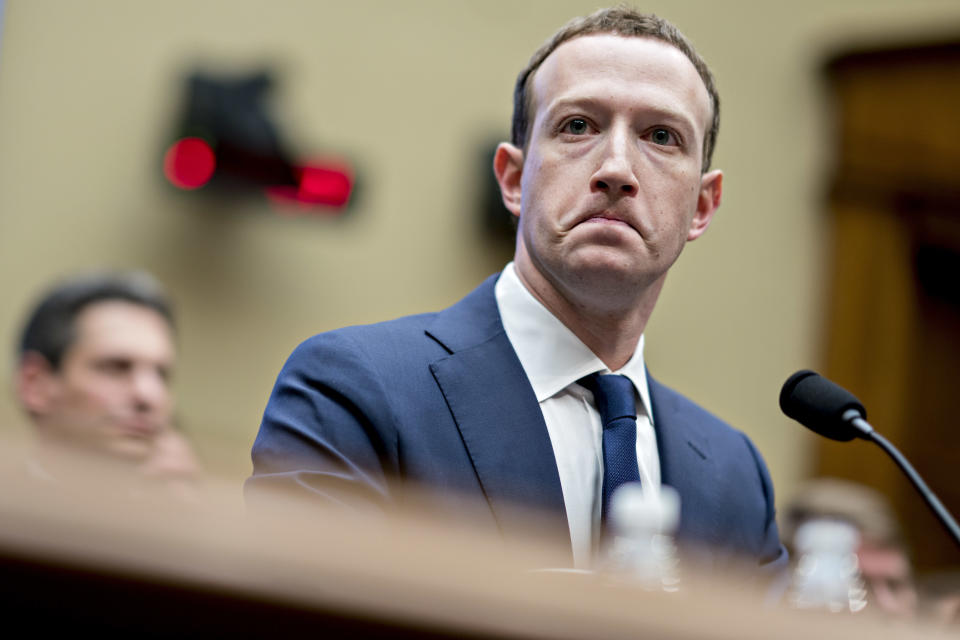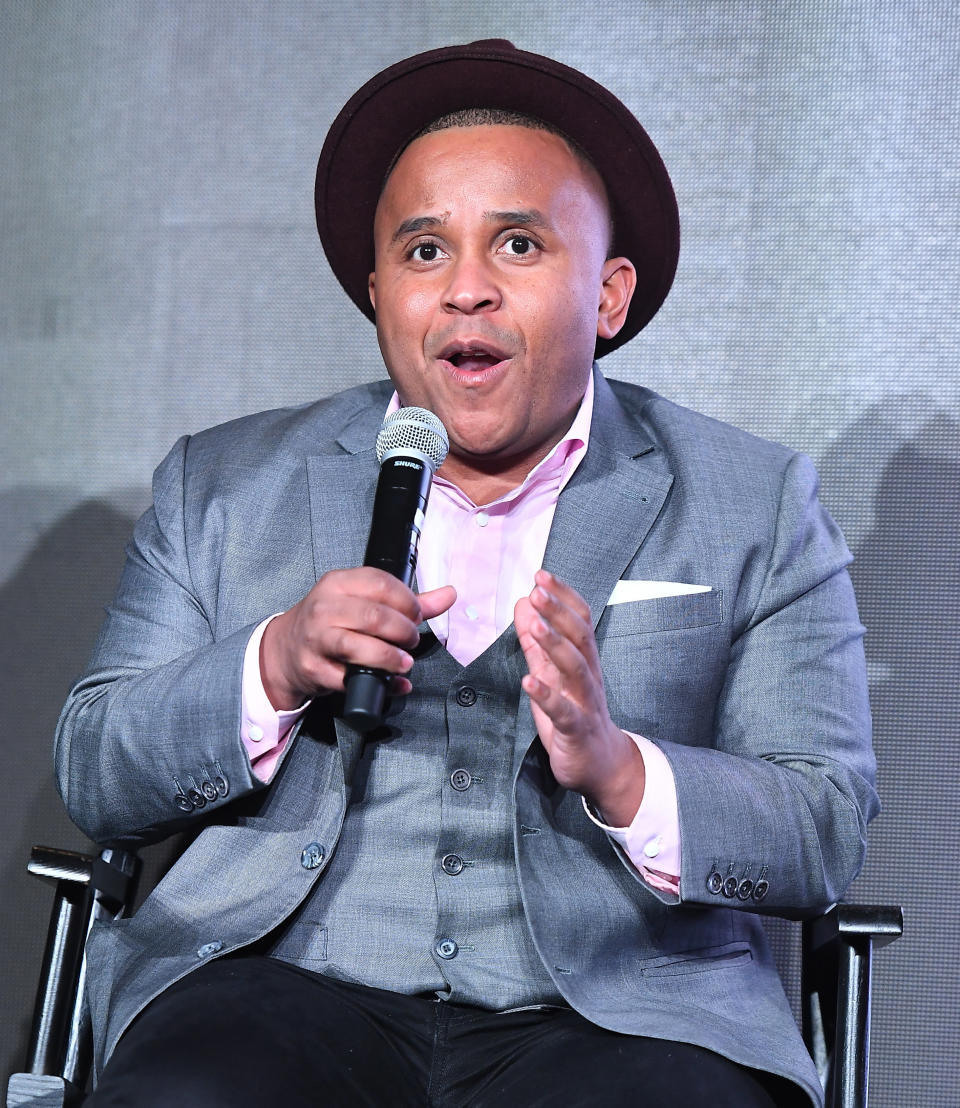Why Facebook, Google, and Twitter don't want to be media companies
To understand why social media giants don’t want to be considered media companies, all you have to do is to compare the price/earnings ratios of Disney and Twitter.
There are other reasons why Twitter, (which has a P/E of 19.6) might carry a higher valuation than Disney (15.6), but when arguably the best-managed legacy media company is cheaper than a social media company that has had issues, that says something. And this isn’t the only example. You see the same valuation divide across the board with old media stalwarts such as Comcast, CBS/Viacom, Sony and AT&T (more on them in a second) on the one hand (cheap), and the social media companies; Facebook, Google parent Alphabet—and even the likes of Yelp, and presumably Pinterest when it goes public, (pricey.) With that kind of evidence, I think it’s safe to say the category itself, to a degree, informs those relative stock prices.
None of this is lost on the leaders of social media companies, who have long resisted being labeled media companies in part because media companies command lower valuations.
Why social media doesn’t want to be old media
If Twitter, Facebook, and Google were media companies, they would be held 100% accountable for the content that appears on their platforms. Under Section 230 of the Communication Decency Act, providers of “interactive computer services” like these tech giants are largely immune from liability over content posted by others.

If they were media companies, it would invite regulation and more investment in terms of sophisticated algorithms and hiring more humans—never mind difficult decision-making. It would also make these platforms much more susceptible to litigation.
Every single one of those items would require significant expenditures that would lower margins. That would make the companies less valuable and presumably lower their P/Es into the range of the old media companies’.
So you can see why executives at social media companies go to great lengths to describe themselves as open, agnostic, even magical platforms with little responsibility for their content except in very obvious cases such as calls for murder and the sale of opioids.
But now Facebook, Alphabet, and Twitter are discovering it’s much more complicated than that. You see it in headlines every day: Pinterest recently stopped allowing for searches on vaccines as it was enabling the anti-vax crowd.
Google followed suit to a degree and Facebook may be, as well.

And speaking of Google, it recently had to work to rid its comments section on YouTube of content that was linked to pedophiles. And there’s Alex Jones and myriad others who’ve been banned from Twitter. I find this Wiki page list of Twitter suspensions fascinating.
Meanwhile, old-school companies like AT&T, which owns Warner Communications, are struggling to morph into new media by recasting themselves and creating streaming services. So far it’s been a mixed bag at best. AT&T’s recent restructuring announcement did nothing to move its stock.
If it looks like a duck ...
No wonder new media companies work so hard not to be lumped in with the legacy names. Advocates for social media companies say the bar defining a media company is fairly high. They refer to Section 230 of the Communications Decency Act (CDA) of 1996 as making that pretty clear. It reads: "No provider or user of an interactive computer service shall be treated as the publisher or speaker of any information provided by another information content provider.”
This law specifically protects “content moderators” like Facebook and not “content creators” like The New York Times. “If you take the position that content moderation makes you a media company, that’s precisely the result section 230 was trying to avoid,” argues Matt Schruers, Vice President, Law & Policy at Computer and Communications Industry Association, a trade group that includes Google and Facebook.

Opponents say none of this passes the duck test (If it looks like a duck and quacks like a duck ... then it’s probably a duck). In other words, social media companies look and function a lot like media companies. In September, a Pew poll found about two-thirds of American adults at least occasionally get their news on social media.
“[Social media companies] prioritize what’s legitimate media and what isn’t,” says Rashad Robinson, executive director of Color of Change, a civil rights organization. “Algorithms determine what we see and don’t see ... [Social media] platforms pick winners and losers and prioritize certain content over others. Absolutely [they are] gatekeepers.”
Is regulation an answer? The social media companies insist that all that is required is self-oversight, a notion critics dispute. Kristen Clarke, president & executive director at the Lawyers’ Committee for Civil Rights Under Law, says, “I do believe that many tech companies feel they can self-police and self-regulate. We had employers and landlords once upon a time who felt they could do the same. At the end of the day, it took strong civil rights laws put on the books to hold companies that discriminate or facilitate discrimination to be held accountable.”
A new kind of beast
Jennifer Granick, attorney with ACLU, points out that the arguments, or those engaging in them, are often paradoxical. The same people who don’t want Facebook to restrict job searches to people of certain age or housing by ethnicity may want Facebook to remove what they consider hateful speech. The social media companies also talk from both sides of their mouth, arguing like media companies that they need to cover both sides of, say, political issues, but then pooh-poohing calls for the kind of regulation media companies have. That kind of mixed thinking makes blanket resolutions difficult.
The real conundrum of course is that Facebook, Alphabet, and the like are still to a great degree, the unknown. Founded only an eye blink ago (Google 1998, Facebook 2004) and now wielding almost unimaginable power over our economy and society, they are undeniably a new kind of beast, part media, part communication platform, whose sum total we are still figuring out.
For investors in these new companies the good news is that this novelty—never mind the growth of the business—has conferred rich valuations and powered the stocks higher. More recently of course Facebook, Google, and Twitter have faced a host of issues entailing privacy, national security, and free speech—the same problems traditional media outlets have faced for decades. Not only do social media companies need to address those concerns, they seem to feel compelled to do so as their own special category.
That could be tough to pull off.
Andy Serwer is editor-in-chief of Yahoo Finance.
A simple, yet radical solution to solve Facebook’s problems
How Donald Trump strengthened The New York Times and grew a Mexican billionaire's fortune
